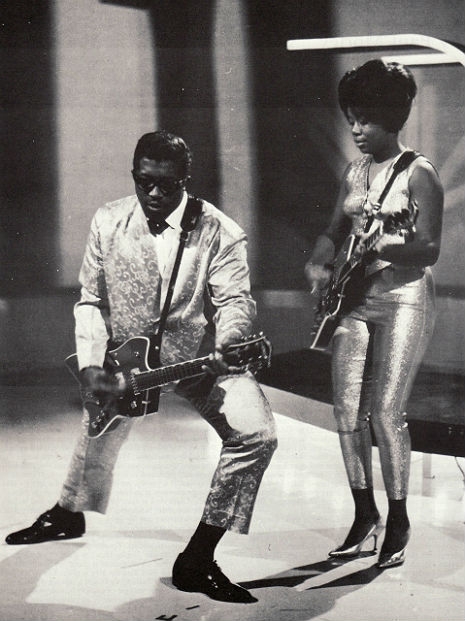

On November 20, 1955, Bo Diddley appeared on the popular television program The Ed Sullivan Show. In the American slang term bo diddly, bo is an intensifier and diddly is a truncation of diddly squat, which means "absolutely nothing". It probably has influences from the West African coast. Guitar craftsman Ed Roman stated that it was McDaniel's nickname as a Golden Gloves boxer.Ī diddley bow is a homemade single-string instrument played mainly by farm workers in the South. Harmonicist Billy Boy Arnold said that it was a local comedian's name, which Leonard Chess adopted as McDaniel's stage name and the title of his first single. He also said that the name first belonged to a singer his adoptive mother knew. McDaniel claimed that his peers gave him the name, which he suspected was an insult. The origin of the stage name Bo Diddley is unclear. The record was released in March 1955, and the A-side, "Bo Diddley", became a number one R&B hit. They re-recorded the songs at Chess Studios, with a backing ensemble comprising Otis Spann (piano), Lester Davenport (harmonica), Frank Kirkland (drums), and Jerome Green (maracas).

In late 1954, he teamed up with harmonica player Billy Boy Arnold, drummer Clifton James and bass player Roosevelt Jackson and recorded demos of "I'm a Man" and "Bo Diddley". In 1951 he landed a regular spot at the 708 Club, on Chicago's South Side, with a repertoire influenced by Louis Jordan, John Lee Hooker, and Muddy Waters. Williams later played lead guitar on "Who Do You Love?" (1956). By 1951 he was playing on the street with backing from Roosevelt Jackson on washtub bass and Jody Williams, whom he had taught to play the guitar. During the summer of 1943–1944, he played at the Maxwell Street market in a band with Earl Hooker. Green became a near-constant member of McDaniel's backing band, the two often trading joking insults with each other during live shows. 1934–1973), in the Hipsters band, later renamed the Langley Avenue Jive Cats. Inspired by a performance by John Lee Hooker, he supplemented his income as a carpenter and mechanic by playing on street corners with friends, including Jerome Green (c.

However, he was more interested in the pulsating, rhythmic music he heard at a local Pentecostal church and took up the guitar. He was an active member of Chicago's Ebenezer Baptist Church, where he studied the trombone and the violin, becoming so proficient on the violin that the musical director invited him to join the orchestra. In 1934, the McDaniel family moved to the South Side of Chicago, where he dropped the Otha and became Ellas McDaniel. He is also recognized for his technical innovations, including his distinctive rectangular guitar.īorn in McComb, Mississippi, as Ellas Otha Bates, he was adopted and raised by his mother's cousin, Gussie McDaniel, whose surname he assumed. In recognition of his achievements, he was inducted into the Rock and Roll Hall of Fame and received Lifetime Achievement Awards from the Rhythm and Blues Foundation and a Grammy Award from the National Academy of Recording Arts and Sciences. His use of African rhythms and the signature "Bo Diddley beat", a simple five-accent hambone rhythm, is a cornerstone of r&b, rock, pop and hip hop. He is cited as a key figure in the transition of blues into rock and roll, by introducing more insistent, driving rhythms and a harder-edged guitar sound. Ellas McDaniel (born Ellas Otha Bates, Decem– June 2, 2008), known as Bo Diddley, was an American rhythm & blues and rock & roll singer, guitarist, songwriter and music producer.


 0 kommentar(er)
0 kommentar(er)
